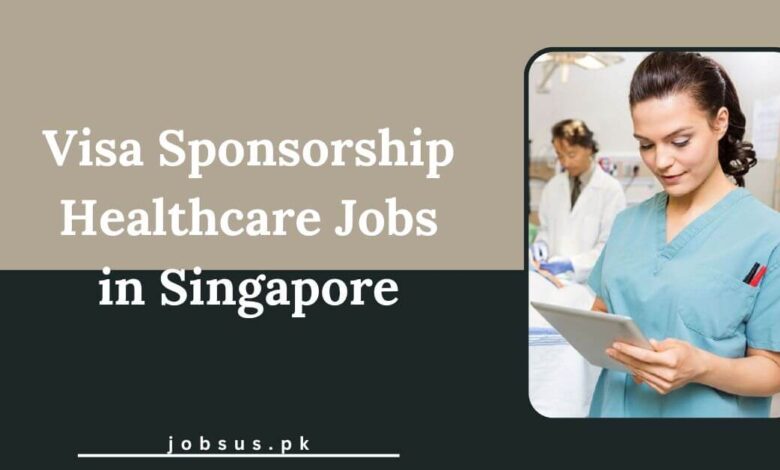Visa Sponsorship Healthcare Jobs in Singapore 2025

Singapore is internationally recognized for its world-class healthcare system and commitment to medical excellence. With advanced facilities, cutting-edge technology, and a rapidly aging population, Singapore actively seeks skilled foreign healthcare professionals — offering ample job opportunities with visa sponsorship and competitive benefits.
Healthcare Industry in Singapore:
- Dual System: Public and private healthcare sectors.
- High Standards: Patient-centered care, specialized centers of excellence, innovative medical research, and advanced facilities.
- Government Investment: Continuous support for healthcare infrastructure, research, and professional development.
Roles:
- Medical Doctor / Physician
- Registered Nurse
- Pharmacist
- Physiotherapist
- Occupational Therapist
- Radiographer
- Medical Laboratory Technologist
- Speech Therapist
- Clinical Research Associate
- Healthcare Administrator
Check Also: Visa Sponsorship Jobs in Belgium – Apply Now
Benefits:
- High Demand and Job Security:
Especially driven by an aging population and healthcare innovation. - Competitive Salaries:
Based on experience, qualifications, and role. - Global-Standard Facilities:
Work with state-of-the-art equipment. - Career Growth:
Government-funded training and specialization programs. - Multicultural Work Environment:
Exposure to a global talent pool. - Visa Sponsorship and Relocation Support:
For skilled international professionals. - Superior Infrastructure:
Modern hospitals, research institutes, and specialized clinics. - Global Recognition:
Singaporean experience is highly valued worldwide. - Comprehensive Employee Benefits:
Annual leave, health insurance, transportation subsidies, housing allowances. - Low Tax Rates:
Retain more of your earnings. - Work-Life Balance:
Flexible schedules where possible. - Research Opportunities:
Participation in global research and innovation projects. - Cultural Diversity:
Vibrant local life and multicultural exposure. - Permanent Residency (PR) Pathway:
Easier for healthcare professionals. - Networking Opportunities:
Medical conferences, workshops, collaborations with global leaders.
Visa Sponsorship Options for Healthcare Jobs:
- Employment Pass (EP):
- For professionals, managers, and specialists.
- Higher salary threshold.
- Ideal for senior healthcare roles.
- S Pass:
- For mid-skilled healthcare workers.
- Moderate salary and qualifications required.
Employers usually assist with the visa application process once you receive a job offer.
How to Secure Visa Sponsorship Healthcare Jobs in Singapore 2025?
- Research Opportunities:
Explore Singapore hospitals, clinics, research centers, and healthcare networks. - Customize Your Application:
Tailor your resume and cover letter to emphasize healthcare skills, certifications, research, and clinical experience. - Network Effectively:
Join online healthcare communities, attend medical conferences, and connect with Singapore-based healthcare professionals. - Apply Strategically:
Target roles that match your qualifications and career goals. Be thorough with applications. - Ace Your Interviews:
Showcase clinical expertise, understanding of Singapore’s healthcare culture, and commitment to patient-centered care. - Visa Processing:
Your employer will guide you through the visa sponsorship process (EP or S Pass).
Official Information: Always refer to the Ministry of Manpower (MOM) Singapore Website for the latest visa and employment pass criteria.
For More Info:
Email Your CV, and We’ll Find the Best Pathway For you: info@jobsus.pk
Frequently Asked Questions:
What is the demand for healthcare workers in Singapore?
By 2030, Singapore needs to recruit approximately 6,000 nurses, allied health professionals, and care staff annually.
What is the average salary for Healthcare Assistants?
Healthcare Assistants typically earn SGD $2,200 to $2,400 per month.
How do I become a healthcare assistant (HCA) in Singapore?
Complete a 5-week full-time or 5-month part-time WSQ Certificate Course to qualify for healthcare assistant roles.



